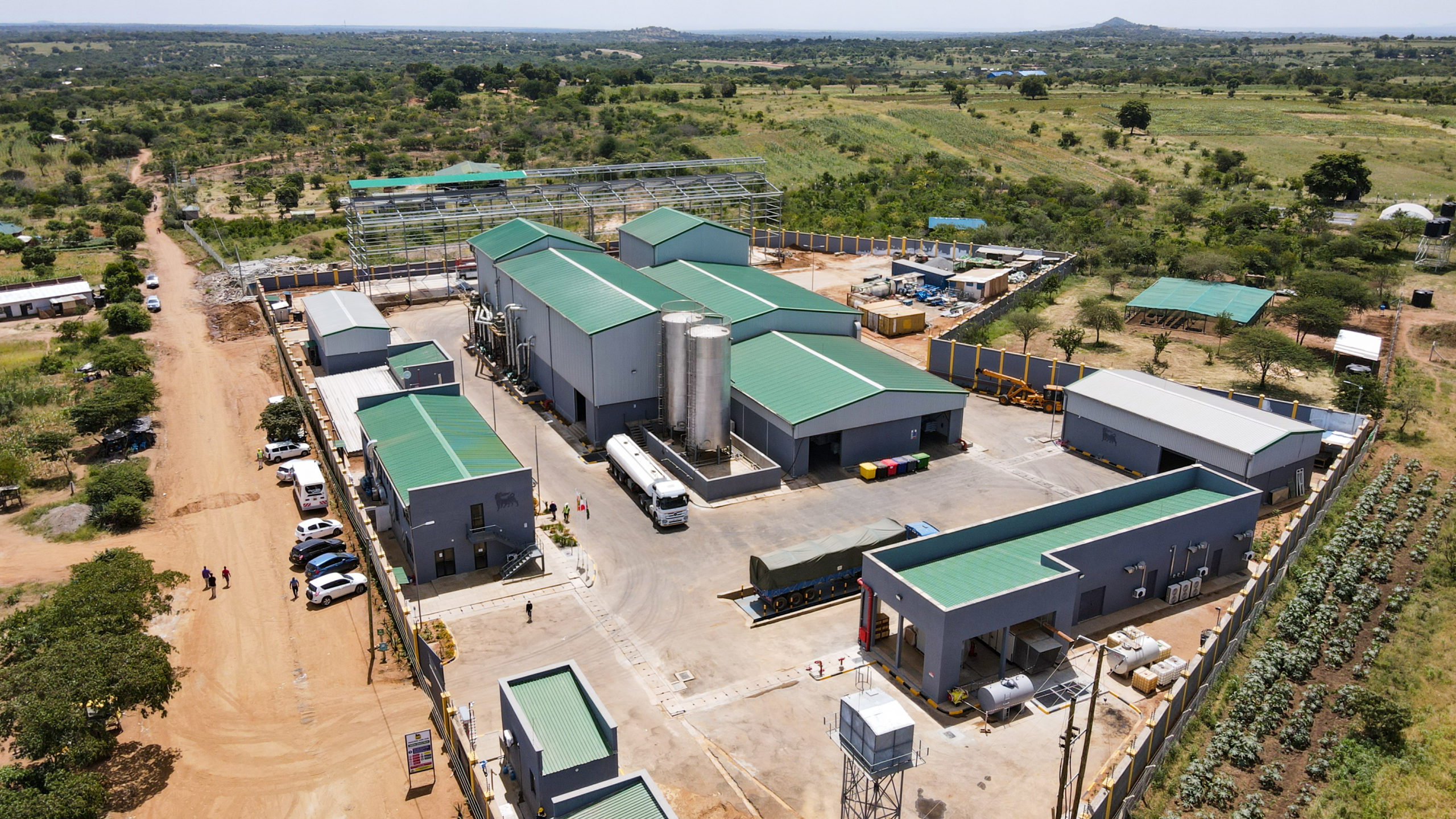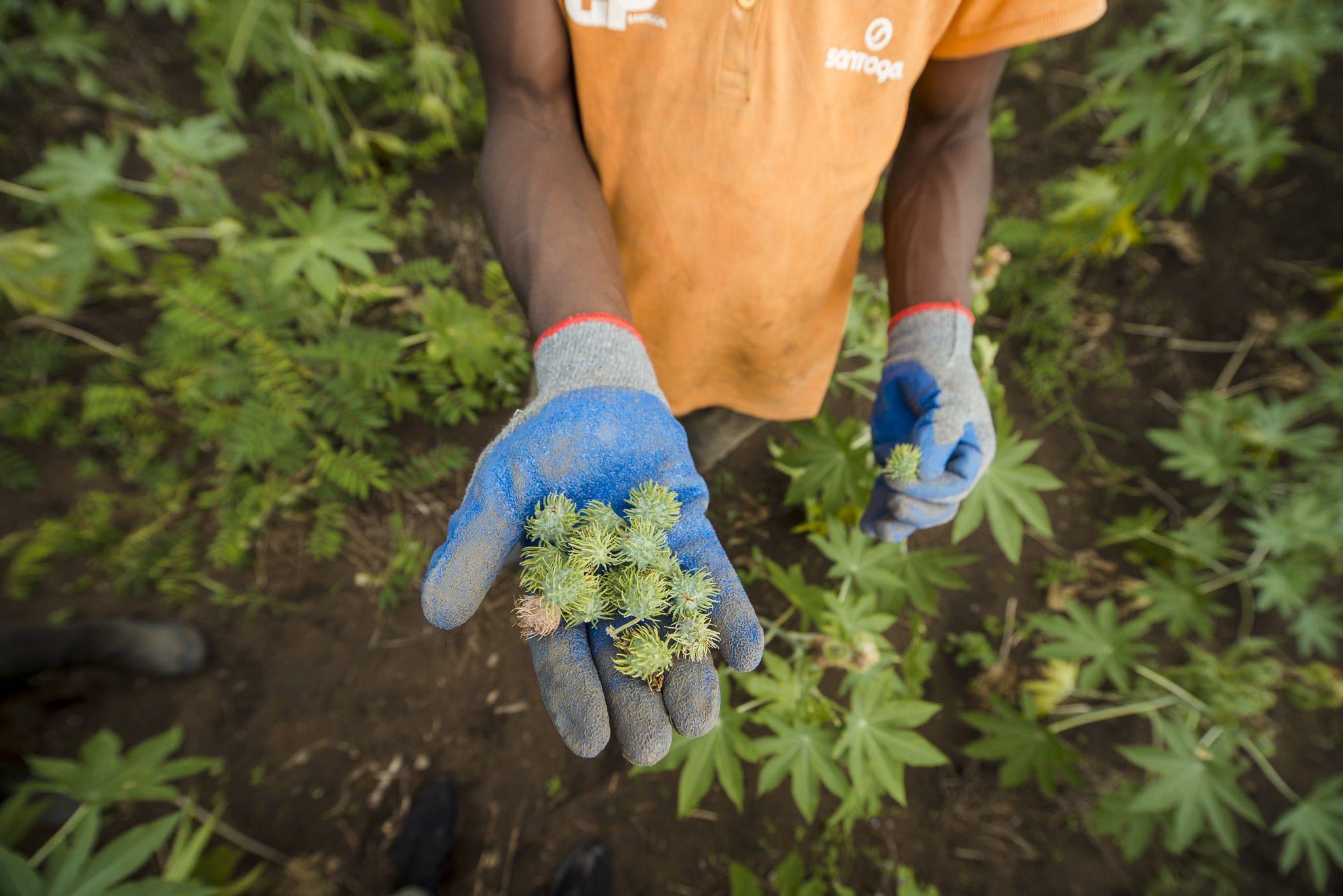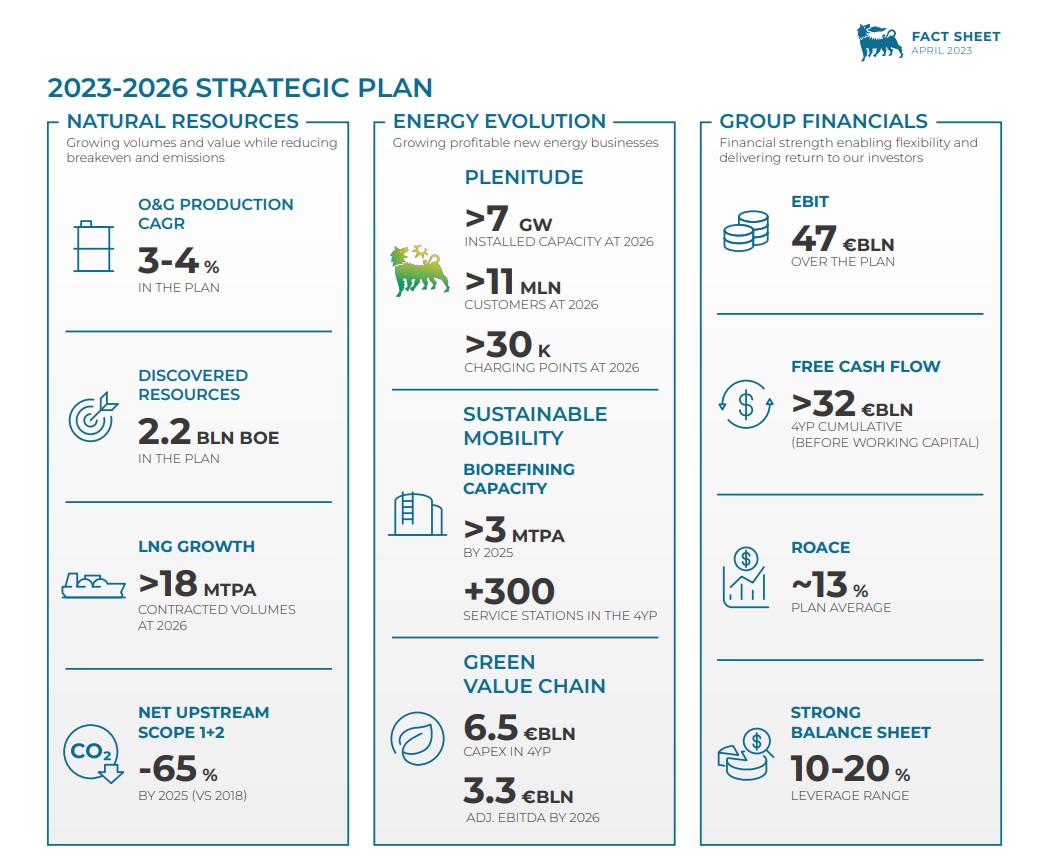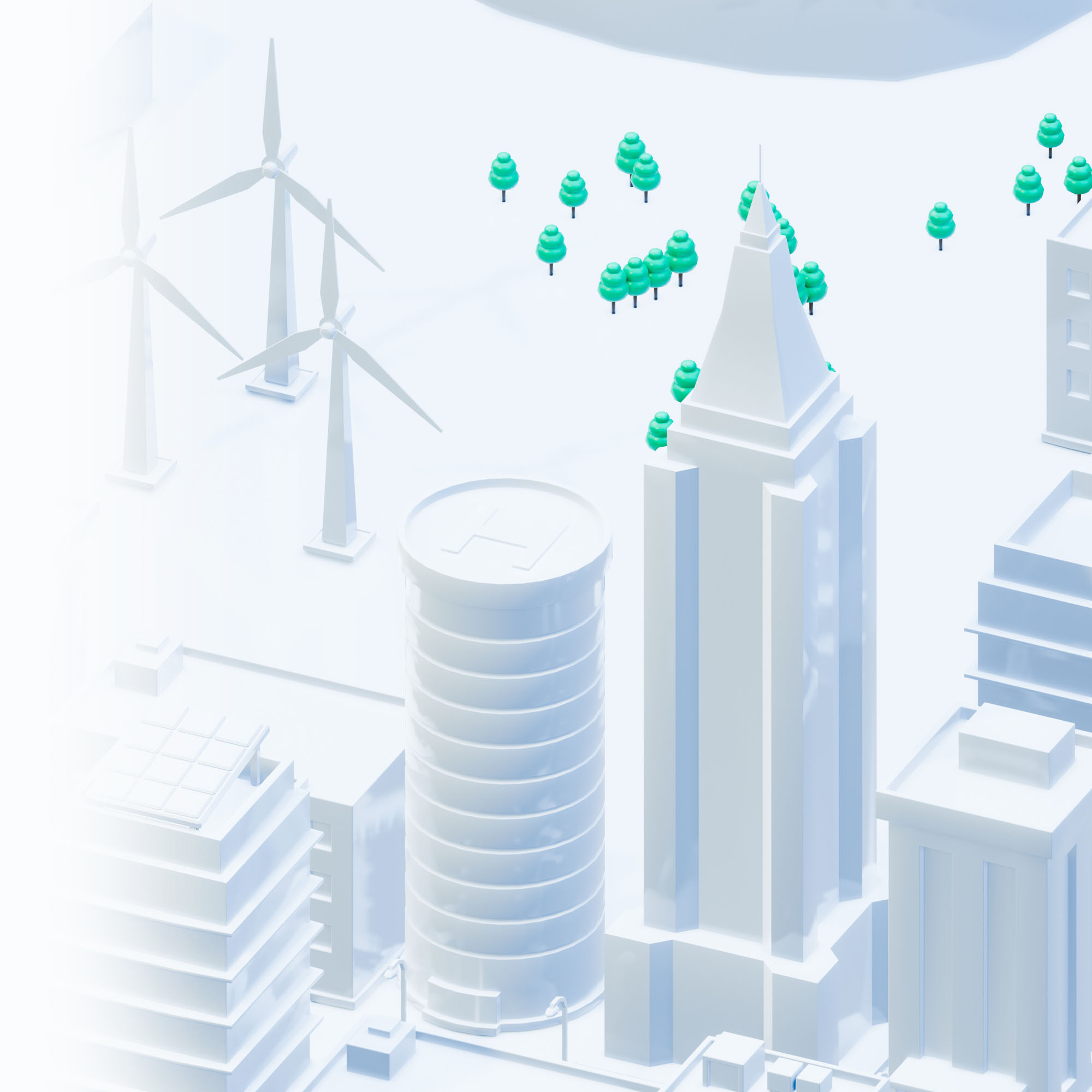Commitment
Eni’s strategic roadmap will lead to the full decarbonisation of all our products and processes by 2050, combining economic and environmental sustainability while supporting the secure supply of energy.
Our strategy builds on our technology and our commitment to innovation:
Bio-refineries: Accelerated targeted capacity over 3 MTPA by 2025 versus 2 MTPA previously, and more than 5 MTPA by 2030.
Circular economy: larger use of biogas, waste and recycling final products;
Efficiency and digital solutions in operations and customer services;
Renewable capacity of >7GW by 2026, and >15GW by 2030;
Blue and green hydrogen for Eni’s bio-refining system and other hard to abate activities;
Natural or artificial carbon capture to remove residual emissions;
REDD+ initiatives: offsetting more than 6MTPA of CO2 by 2024 and more than 40MTPA by 2050;
CCS projects: total storage capacity of approximately 4.5 MTPA by 2025, 30MTPA by 2030.
The gas share of production will increase to 60% by 2030 continuing to diversify and support the energy transition, offering a secure supply of energy.
We are investing and contributing to scientific partnerships in various initiatives aimed at developing energy from fusion, a breakthrough technology which could reproduce on Earth the energy of the stars, providing virtually unlimited, clean and safe energy.
Lighthouse initiative
Biofuels can make an important contribution to reducing greenhouse gas emissions (measured in terms of CO2 equivalent according to the “well-to-wheel” methodology, i.e. considering the entire value chain) – from cars, trucks, ships and aeroplanes. Their use is particularly efficient because it is based on existing and operating technologies.
Eni produces biofuels from various feedstock. Today our bio-refineries are powered mostly by waste raw materials such as used cooking oil, animal fats and other biomass.
To ensure an increasingly sustainable supply for our bio-refineries we have launched several “agri-feedstock” projects. We are overseeing the cultivation of non-food crops on degraded land and promoting the introduction of second-harvest crops through regenerative agriculture projects that compete neither with food production nor with forest resources, in a number of African countries. In the same countries, we promote and enhance the collection of waste materials, which can be used for producing biofuel, from agriculture, livestock breeding and the agri-food, catering and tourism industry. The products are collected in our “agri-hubs” – the first one is already in operation in Kenya – are then processed in our bio-refineries and contribute to the production of biofuels, initially with a limited role but then increasingly important.




